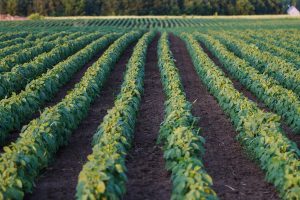Production of Organic Oils and its Challenges

Over the last several years, organic products have gone from fringe to mainstream, quickly becoming sought-after by consumers. Demand for organic oils and oilseeds co-products has kept pace with this trend. While products with labels like “non-GMO” are still prized, most consumers are interested in certified organic items and are often willing to pay more for them.
What is “Organic”?
For a product to be classified as organic, it can’t just rely on the say-so of a company. Organics must be USDA (or EU) certified. Products that are certified must be non-GMO and sourced
naturally—no pesticides, chemicals, or preservatives. In addition, the European Union requires the item to have a high level of biodiversity with traceable raw materials. The company must show that they preserved natural resources in the production of the finished item.
Domestically, when it comes to organic oils and oilseeds co-products, the US is more limited than its international counterparts. 94% of soybeans grown in the US are genetically modified, compared with 50% globally. Most organic beans grown domestically are owned by two major companies, producing soybeans for organic chicken feed. This means the US must import the majority of its organic soybeans, which it primarily sources from India. In 2018, the United States imported 620,000 MT.
Challenges of Organic Production
Segregation
Organic oilseeds must be kept separate from all non-organic process streams, which means they need their own unique equipment and extraction processes. An additional challenge for organic oilseeds is that hexane and other chemical solvents cannot be used to process the seeds. It’s best to have a dedicated process and meal loadout for organic products to avoid these issues. Additionally, it’s important that companies are careful about dust collection from shared systems, which can contaminate organic products.
Extraction
With the growing demand for organic oils, mechanical extraction plants are being built to fulfill the needs of the organic process. Why mechanical extraction? Typical chemical solvents such as hexane don’t fall within the “organic” category, so they are off the table. Possible alternatives to hexane include CO2 extraction, ethanol, bio-based solvents, and microwave and ultrasound-assisted methods. However, all these alternatives come with a higher cost and produce very low yield of product. This makes them largely unfeasible.
Mechanical extraction, while the most viable method today, still comes with limitations. The first is capacity. While larger presses can be designed to process 600 tons per day, the typical press produces around 100 tons per day. The yield for organic oilseeds is typically around 137 grams of oil per kilogram of beans—about 75% recovery of oil. The process leaves 5-7% of the residual oil still in the cake. Another challenge is operating cost: the lower capacity and yield of current mechanical extraction means higher unit costs.
Opportunities
Production of organic oil comes with significant challenges, there are also opportunities to improve the entire process. First, not all equipment is equal. To meet the central challenge of maximizing yield and limiting oil in the meal, an extruder/press offers much better yield allowing oil to be produced much more quickly. Proper bean conditioning can also help, and dehulling the beans improves yield and reduces equipment wear—however, some oil is lost with the hulls. If the meal is sensitive to heat, cold pressing is another option to help make the process easier and more profitable.
Going Beyond Soybeans
While this article focuses on organic soybeans as the primary oilseed, other alternatives exist. Organic canola oil is more commonly available; however, the meal from canola is less desired. Algal oils are currently struggling to move beyond fuel as a viable edible oil. However, major opportunities exist in organic protein isolates for human, animal, and even fish food. While soybeans are currently king, in the coming years, scientific breakthroughs could increase the number of viable alternatives.
Organic oils and oilseeds co-products have never been in more demand. However, meeting the standards for organic products requires special preparation and careful forethought. As producers look to increase yields and lower costs, opportunities exist for better processing, more output, and increased profit.
If your operation sees demand for non-GMO or organic oilseed products in your facility, ADF Engineering can help. We can develop a masterplan that includes sustainable operation and perform the required engineering for the addition. If you have any questions, please contact Matt Williamson, P.E. at: mwilliamson@adfengineering.com or at 937-847-2700 x113

